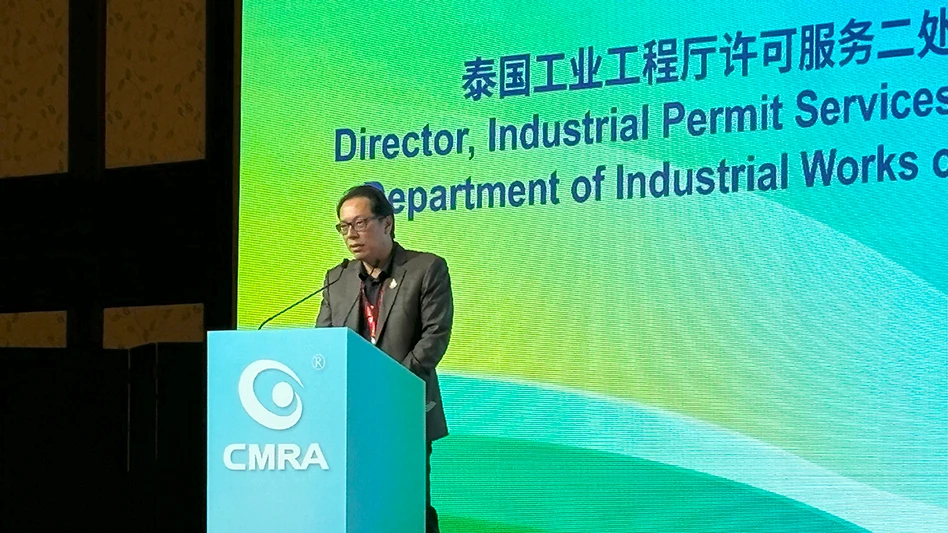
Photo by Recycling Today
For more than a decade, regulatory scrutiny in China has rippled into other parts of Asia, sparking questions as to whether it was desirable for nations to welcome imported recycled materials to make new products.
The turmoil has had a major impact on member companies of the China Nonferrous Metals Industry Association Recycling Metal Branch (CMRA), with many of the firms tiring of government scrutiny in China to the point where they moved parts of their operations to Association of Southeast Asian Nations (ASEAN) countries such as Malaysia and Thailand.
Initially, Malaysia seemed to welcome the investments from metals recycling companies while casting a more suspicious eye toward firms bringing in plastic scrap. Eventually, however, Malaysia (along with neighboring Indonesia) adopted cargo inspection and restriction practices toward some metals grades in ways subject to uncertain and inconsistent enforcement.
When the CMRA selected Thailand’s capital Bangkok as the host of its inaugural ASEAN Recycling Metals International Conference, which took place there in mid-June, it included on the program representatives from several Thai organizations to deliver a message to recyclers that they are welcome there.
On the roster were speakers form the nation’s Department of Mines, Department of Industrial Works, Board of Industrial Investment and the Industrial Estate Authority of Thailand.
Dr. Teerawut Tunnukij of the Department of Mines said the nation’s government and his department had adopted the “principle of circular economy” in its policies, "focusing on adding value to these raw materials."
Supporting recyclers may come in the form of worker training, offering public education about recycling, and operating a research facility in Samut Prakan Province in Thailand that is researching hydrometallurgy and other technologies.
Pattarapon Limpakdee of the Permit Services Division of the Department of Industrial Works said permits are required for many types of recycling facilities, but said his department is focused on helping companies obtain the permissions they need.
While enforcing regulations is part of the department’s responsibilities, he said his agency also has been assigned to find solutions in such cases to help overseas companies build up Thailand’s “green” economy.
Limpakdee said the effort to assist recycling companies ties into the government’s BCG (bioeconomy, circular economy and green economy) initiative, which sets targets for foreign direct investment (FDI) tied to those economic sectors.
Worakan Kosolpisitkul from the nation’s Board of Investment said companies who can tie their efforts to the BCG initiative may be receive help in finding land and workers, including through what he called a “one stop service” location in Bangkok supported by 30 different government agencies.
An emerging land option for recyclers may come in the form of a “circular economy industrial estate” being developed. Land is being assembled in eastern Thailand to create a park that will join 68 existing government-approved industrial estates, according to Panadda Yentrakul of the nation’s Industrial Estate Authority.
She indicated recyclers would be a main group invited to submit proposals to set up facilities in the estate, where said her agency is like the landlord.
Yentrakul said recyclers of materials ranging from plastics and metals to electronic vehicle (EV) batteries are among the candidates to be situated in the planned park.
The CMRA 2024 ASEAN Recycling Metals International Conference took place at the Shangri-La Bangkok from June 17-19.
Latest from Recycling Today
- BMW Group, Encory launch 'direct recycling’ of batteries
- Loom Carbon, RTI International partner to scale textile recycling technology
- Goodwill Industries of West Michigan, American Glass Mosaics partner to divert glass from landfill
- CARI forms federal advocacy partnership
- Monthly packaging papers shipments down in November
- STEEL Act aims to enhance trade enforcement to prevent dumping of steel in the US
- San Francisco schools introduce compostable lunch trays
- Aduro graduates from Shell GameChanger program





